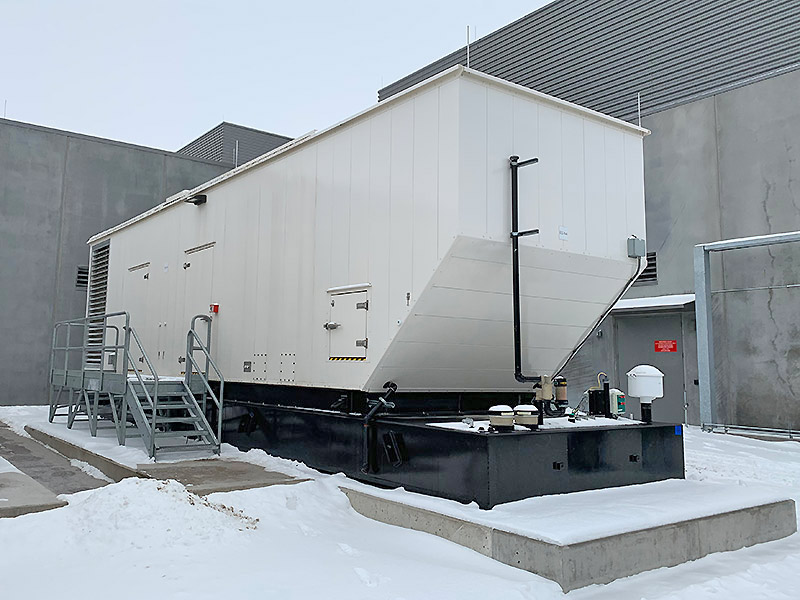
5 Tips: Generator Preparedness for Extreme Weather Conditions
Winter is here and extreme weather conditions are affecting many parts of the country. From record-setting snowstorms to high winds and flooding, the rapid frequency of severe weather events that we have witnessed over the last several years continue to be a problem this year and are pushing our aging power grid beyond its limits, causing damage and more frequent long-term power outages.
It’s more important than ever to protect your business with a permanent backup power solution. For most businesses, the most economical solution is a backup generator. But even with an emergency backup generator in place, properly maintaining the generator and the entire backup power system is key to making sure it will work when you really need it. This is especially important during extreme weather events, when an emergency backup power generator can be lifesaving and business-saving.
For businesses with a backup power system in place, we’ve prepared this list of five tips to make sure your generator will operate during extreme winter conditions:
1. Batteries
Batteries – while proper generator maintenance should help avoid a battery failure due to age, extreme cold weather can cause failures with older batteries. We recommend replacement of batteries every 3 years, based on the battery built date code and routine capacitive battery testing during routine operational maintenance.
2. Fuel Temperature
Diesel Fuel Temperature – Extremely cold weather can cause issues with standard DF2 diesel fuel causing it to separate or sometimes referred to as gel, so that it will not flow properly through the engine’s fuel system. This can cause the generator to shut down entirely. Attention should be given to the fuel type, fuel storage conditions, and additives or stabilizers may be needed to avoid this point of failure.
3. Engine Coolant
Engine Coolant Heater – generator engine coolant is designed to withstand a wide operating temperature range, but extreme winter weather can be an issue. An engine that has cold soaked to -20° will very likely not start regardless of how well the rest of the power system has been maintained. That’s why engine coolant heaters are essential for operation in extremely cold conditions, maintaining engine temperature close to 100 degrees F. Oil emersion and housing space heaters can also be used to help with engine heating depending on the type of generator housing used.
4. Snow Accumulation
Snow Accumulation – a regular maintenance schedule with generator exercising should build enough heat to eliminate snow buildup, but during extended snowstorms, it’s a good idea to check the generator air intake and exhaust to make sure that snow has not accumulated and blocked the airflow, as that can cause several airflow related issues. In high snow accumulation areas the installation of a snow hood maybe required.
5. Maintenance
Regular Maintenance and Testing/Exercising – most generator problems can be avoided altogether with regular maintenance and with load testing. It’s important to be aware of what extreme conditions you may be confronted with. The key is to identify any possible issues before they become a problem and make sure your generator will be able to handle any potential power outages.
Global Power Supply can help with a backup power solution for your business. We work with a variety of commercial and industrial industries from agriculture to healthcare to the highest spec data centers. We offer sales, rentals, installation and maintenance services as well as custom design and engineering.
Please contact us today for a free consultation on how we can help.